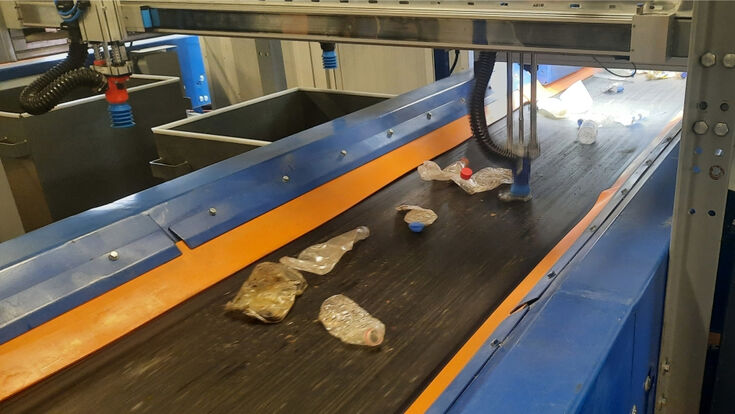Enhancing Environmental Sustainability Via Strategic Fluid Waste Removal Solutions
In the world of ecological sustainability, the efficient management of liquid waste stands as a crucial focal factor in maintaining our ecological communities and protecting public health and wellness. Allow us embark on a trip to reveal the transformative capacity of strategic liquid waste monitoring practices in boosting ecological sustainability.
Importance of Fluid Waste Monitoring

Among the essential factors why fluid waste monitoring is important is its direct influence on public wellness. Unattended or improperly treated liquid waste can include dangerous pathogens and chemicals that posture significant health and wellness threats to areas. Polluted water sources can lead to waterborne conditions, influencing both human health and environments. Correct administration of fluid waste assists protect against these wellness dangers and makes certain the wellness of the population.

Obstacles in Fluid Garbage Disposal
Given the crucial relevance of correct liquid waste management in safeguarding public health and environmental well-being, it is imperative to address the numerous difficulties linked with fluid waste disposal techniques. One substantial difficulty is the absence of adequate facilities for the collection, treatment, and disposal of liquid waste.
Another challenge is the presence of dangerous materials in fluid waste, including chemicals, heavy steels, and microorganisms. Correct identification and therapy of these harmful elements need specialized expertise and tools, which may not always be easily offered. In addition, the price of implementing safe disposal methods can be excessive for some towns and industries, causing further and non-compliance environmental damages.
Lasting Fluid Waste Solutions
In the middle of journalism requirement for efficient fluid waste monitoring techniques, the necessary of lasting services arises as an extremely important problem for ecological preservation and public health. Lasting fluid waste solutions include a variety of innovative modern technologies and methods intended at minimizing the ecological impact of waste disposal. One crucial strategy is the implementation of sophisticated treatment processes that promote the effective and risk-free removal of impurities from liquid waste streams. Furthermore, the fostering of round economy principles, such as waste-to-energy efforts and source recovery programs, can assist lessen waste generation and make best use of the application of important sources.
Furthermore, lasting fluid waste solutions focus on the conservation of water resources with the implementation of water recycling and reuse techniques. By dealing with and repurposing wastewater for non-potable applications like watering or commercial procedures, these solutions add to water preservation initiatives and decrease the stress on freshwater resources. On the whole, the combination of sustainable fluid waste options not only sustains environmental sustainability but likewise fosters a much healthier and more durable culture for future generations.
Benefits of Strategic Elimination Practices
Tactically carried out elimination practices play an essential duty in optimizing fluid waste monitoring systems for environmental sustainability and public wellness protection. By taking on critical removal practices, companies can substantially reduce the environmental effect of liquid garbage disposal. Among the essential advantages is the minimization of harmful pollutants going into water navigate to this site bodies, which helps in preserving aquatic ecosystems and protecting drinking water resources - Liquid waste removal. Strategic elimination methods also add to reducing the risks of soil contamination, which can have durable effects on farming efficiency and biodiversity.
Additionally, these techniques promote source recuperation by allowing the extraction of valuable materials from fluid waste streams. Furthermore, strategic elimination methods can improve operational efficiency and cost-effectiveness by streamlining waste management processes and enhancing source allotment.
Implementing Reliable Ecological Methods
Effective application of environmental methods is critical in attaining lasting fluid waste monitoring practices. To begin with, firms have to perform detailed ecological evaluations to determine prospective risks and influences connected with their fluid garbage disposal processes. By comprehending the ecological implications of their procedures, organizations can develop targeted techniques to reduce damage to ecosystems and public wellness.
Additionally, carrying out efficient ecological approaches includes setting clear objectives and objectives for fluid waste administration - Liquid waste removal. These objectives ought to specify, measurable, achievable, relevant, and time-bound (CLEVER) to ensure accountability special info and track progression in the direction of sustainability targets. Firms can likewise leverage innovation and technology to optimize liquid waste treatment processes, minimize source consumption, and enhance overall effectiveness
Collaboration with regulative agencies, stakeholders, and environmental professionals is an additional essential aspect of successful strategy application. By engaging with outside companions, companies can acquire useful understandings, access resources, and make sure compliance with ecological laws and regulations. Overall, a critical and aggressive strategy to ecological management is crucial for minimizing ecological dangers and promoting lasting sustainability in fluid waste elimination techniques.
Final Thought
Finally, tactical fluid waste removal options play an essential role in improving ecological sustainability. By attending to the difficulties in liquid garbage disposal and implementing sustainable practices, we can reduce the negative influence on the environment - Reclaim Waste. It is vital to prioritize efficient environmental strategies to make sure the long-lasting health and wellness and well-being of our earth
By executing efficient waste monitoring practices, such as correct collection, treatment, and disposal techniques, the risks connected with fluid waste can be considerably reduced.
Offered the essential value of correct fluid waste administration in securing public wellness and environmental health, it is important more info here to attend to the countless obstacles associated with liquid waste disposal practices. Sustainable fluid waste remedies include a variety of ingenious modern technologies and techniques aimed at minimizing the ecological impact of waste disposal.Tactically executed elimination techniques play a crucial duty in optimizing fluid waste monitoring systems for environmental sustainability and public wellness defense. On the whole, a tactical and positive strategy to environmental monitoring is important for minimizing ecological risks and promoting long-lasting sustainability in fluid waste removal methods.